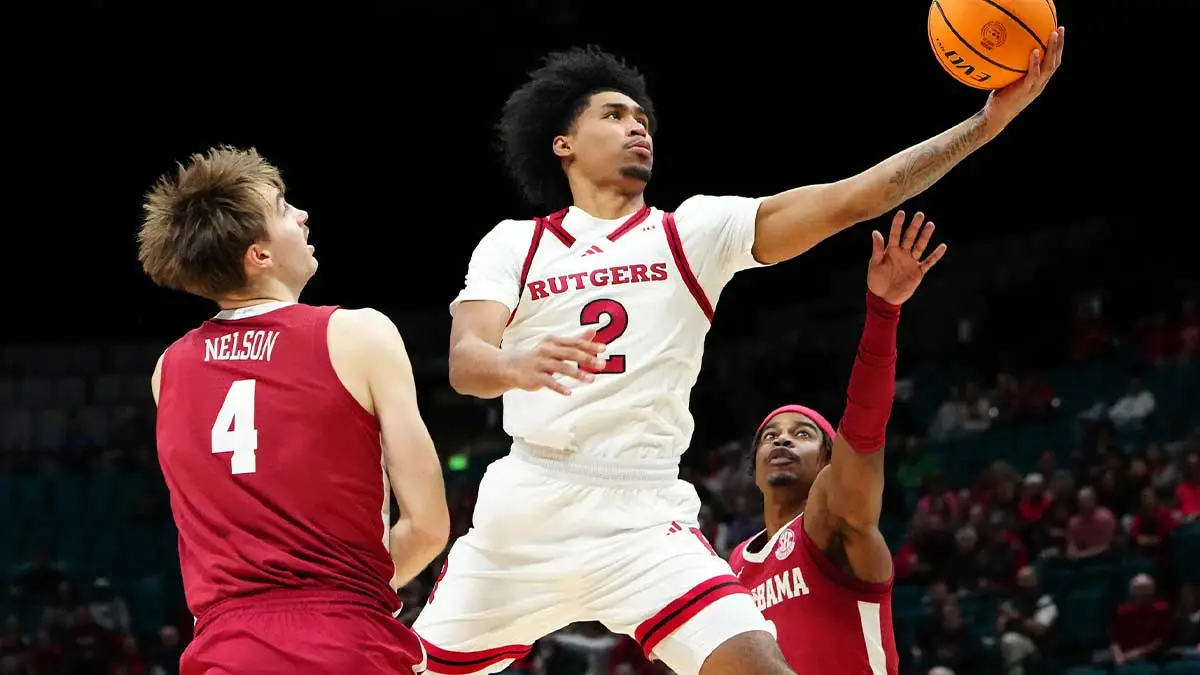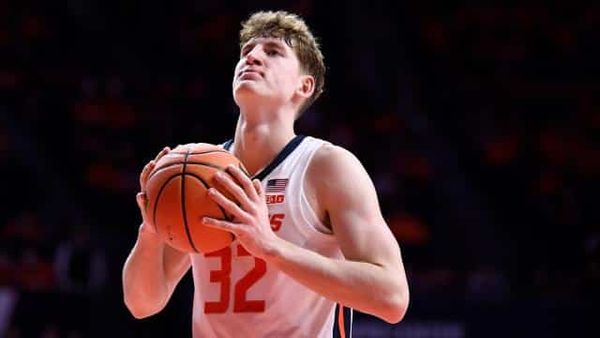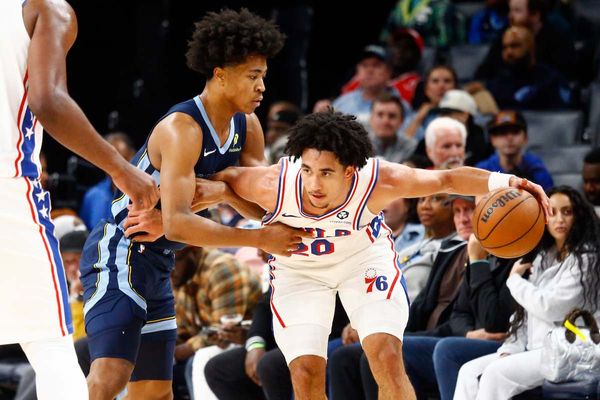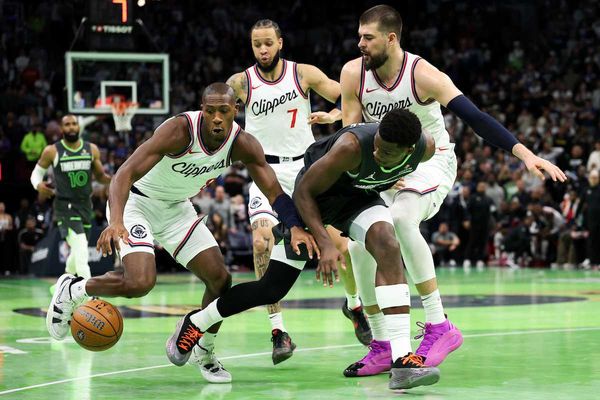
Recently, we delved into Dylan Harper’s prospect status in broad depth. He’s been phenomenal to begin the season at Rutgers, emerging as a clear top-level prospect in a stacked class. Possibly his greatest trait has been his driving, which we’ll analyze more closely here.
Giant guards who frequent the rim often develop into stars, whether that be Anthony Edwards, Jalen Williams, Cade Cunningham or LaMelo Ball. A staggering 6’6, 215-pound frame allows Harper to attempt a staggering 46.4% of his shots in the half-court at the basket. He’s incredibly efficiency, shooting 64.7% on those shots according to Synergy.
Harper’s Slashing Data
To better understand Harper’s slashing, I watched and charted all 52 of his half-court attempts at the rim (and one shot classified as a hook shot on Synergy). Here’s the data I collected:
i hand tracked all of dylan harper’s HC rim attempts so far, here is that data:
– huge self creation frequency (80.7%)
– strong finisher in traffic due to strength/craft/touch
– great right hand finisher (28.8% RH frequency)
– doesn’t self create many ‘open’ looks (16.7% freq) pic.twitter.com/8dJabQ4UsW— ben pfeifer (@bjpf_) December 9, 2024
The tracking aimed to answer a few questions we can’t learn from basic stats. How often does a player finish with their weak hand? What percentage of their shots are self-created? How contested are these finishes? All of these are relevant data points for determining how Harper’s elite finishing right now will translate to the NBA.
Harper’s primary 30.5% usage rate would suggest he’s self-creating plenty of shots and the data backs this up. An enormous 80.7% of Harper’s half-court rim attempts come from his own self-creation, finishing 59.5% there.
With a cavernous bag of advantage creation tools, Harper can win downhill in a variety of ways. His first step is excellent, he’s incredibly strong and smart picking angles and his strengths help him carve out space. He’s been able to generate easy paint touches at will, opening up high percentage looks for himself whenever he chooses.
dylan harper’s easy paint touch creation is the primary driver of his top 2 prospect value. has been impossible to keep from the bucket so far
49% half court rim frequency at a 67.3% clip is absurd pic.twitter.com/mbldoiieZs
— ben pfeifer (@bjpf_) December 4, 2024
Potential finishing limitations
His lack of elite vertical explosion holds Harper back somewhat as a finisher, evidenced by how few open looks (open in this case meaning zero contesting defenders) he generates by himself. Just seven of his 42 self-created rim attempts were open, as Harper often can’t elevate over players, leaning on his touch and craft. He converted five of his 14 “heavily contested” shots (defined as two or more contesting defenders) and these shots aren’t conducive to strong efficiency for almost any guard.
Touch and craft are viable ways for Harper to win, though, given how strong they both are. His efficiency finishing in “medium traffic” (defined as one contesting defender) is excellent, making 17/26 (65.4%) of those shots.
dylan harper’s craft, touch and strength at the basket are all unreal pic.twitter.com/ujkGSysYCy
— ben pfeifer (@bjpf_) December 10, 2024
Harper’s excellent touch extends to his right hand, where he’s comfortable taking difficult shots at uncomfortable angles. He’s taken a solid 28.8% of his half-court rim attempts with his right hand, making 80% of them (12/15). That righty touch opens up more driving angles for Harper and lessens defensive counterplay.
medium traffic = one contesting defender
heavy traffic = two conesting defendersplus one of my favorite right handed finishes of the season for harper pic.twitter.com/dPHNa8Xd7Z
— ben pfeifer (@bjpf_) December 9, 2024
Harper’s driving outlook
The sample size still is fairly small, but Harper has always pressured the rim at a high rate, even if not as high as at Rutgers so far. Players who self-create a high percentage of their shots and remain efficient tend to translate, especially ones who pass and defend like Harper does.
His shots haven’t fallen, shooting 31% on 3-pointers and 23.5% on long 2-pointers (per Barttorvik) but his underlying indicators are solid for projection. Harper’s touch is excellent, shooting 81% at the line and taking 7.7 threes per 100 possessions. Just over half of his attempts come via assists. His driving threat will force defenses to sag deeper, helping Harper open up easier shots.
These numbers will fluctuate as the season continues, but Harper’s self-creation rates should remain fairly stable. How efficiency he can become will determine his ultimate ceiling, but Harper’s advantage creation and scoring at the basket help render him a blue chip NBA prospect.










